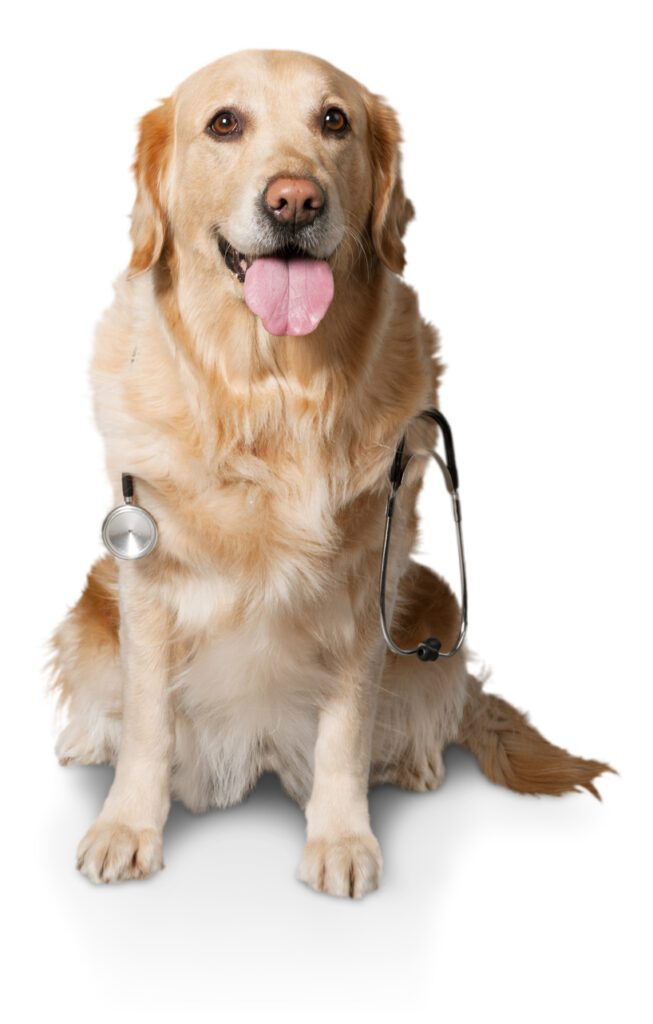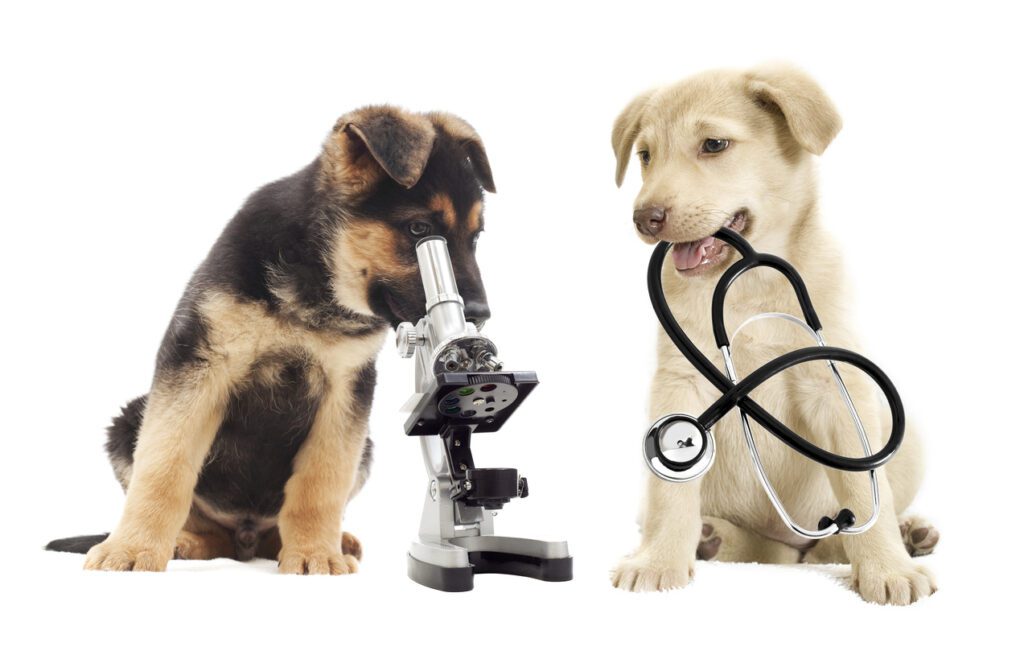Suppose you’re a dog lover like me. In that case, you’ve probably marveled at how our four-legged companions seem to possess an uncanny ability to understand us on a deeper level. Dogs often leave us in awe, whether it’s their knack for sensing our moods, loyal companionship, or heroic acts. But did you know that dogs may also hold the power to detect cancer in humans with their extraordinary sense of smell?

This revelation first caught my attention when I came across the story of Daisy, an 8-year-old Labrador retriever who saved her owner’s life. Daisy began persistent nudging and sniffing at her owner’s breast—an unusual behavior. Intrigued and slightly concerned by Daisy’s odd behavior, her owner scheduled a medical check-up, only to discover early-stage breast cancer, which was successfully treated. Daisy’s story reminds us that sometimes, our furry friends notice things we might not immediately detect.
Note: Daisy is not the only dog that saved their human’s life. It’s astonishing how the bond between humans and dogs goes beyond companionship, sometimes even saving lives in remarkable ways. Dogs like Luna, Daisy, and Mochi have become lifesaving heroes by sniffing out breast cancer in their owners. Luna, a loyal collie, repeatedly sniffed and nudged her owner, Trisha Allison’s, breast, leading her to discover a tumor. Daisy, a Labrador who had already been trained as a medical detection dog, alerted her owner, Dr. Claire Guest, to her breast cancer in 2009. Similarly, Mochi, an intuitive dog belonging to Breanna Bortner, pushed her to seek a second test that revealed aggressive breast cancer. These incredible stories are supported by science—dogs’ extraordinary sense of smell allows them to detect volatile organic compounds released by cancer cells with astonishing accuracy. While we may not fully understand how or why they do it, these stories are a profound reminder of the deep connection we share with our dogs and the lengths they will go to protect us.
Can a Dog Smell Cancer?
The answer is yes! Dogs have an extraordinary sense of smell that far exceeds ours. While humans have approximately 5 million scent receptors, dogs have as many as 300 million. They can detect subtle changes in the chemical composition of our bodies, which accompany the development of certain diseases, like cancer.
One of the most fascinating studies in this field came from the Penn Vet Working Dog Center, where dogs demonstrated exceptional accuracy in identifying ovarian cancer. The team worked with trained detection dogs that could distinguish between healthy and cancerous tissue simply by scent. The accuracy rates were astounding, making these findings significantly contribute to the growing interest in canine cancer detection.
Another study published in the Integrative Cancer Therapies journal highlighted how dogs can detect various cancers, from lung and colon cancer to melanoma. Their ability to differentiate between complex scent patterns associated with cancers is remarkable.
The Role of Early Detection in Cancer Treatment
One of the most critical factors in effectively treating cancer is early detection. Cancers caught in their earliest stages are far easier to manage and treat, and survival rates improve significantly with timely diagnosis. This is where dogs could transform the way we think about cancer screenings.
Imagine how life-changing it would be to incorporate trained detection dogs into screenings. Their sensitivity to cancer-specific odors could help alert doctors to abnormalities earlier than traditional diagnostics. Research teams, including those associated with Cancer Research UK, are now working to expand our understanding of how canine scent detection could be formally integrated into medical practice.
A Personal Connection to Canine Intuition
Now, as much as I marvel at these detection dogs’ skills, I must admit that neither Teddy nor Bear (my adorable pups) has alerted me to health issues. Still, they constantly amaze me with their superior senses in other areas. Their ability to notice things I might overlook has taught me one valuable lesson—to pay attention when they’re alert to something unusual.

While Teddy and Bear haven’t sniffed out cancer, their keen awareness makes me reflect on how we might learn from their abilities, not only for medical breakthroughs but also to live in the moment, aware and present.
Still an Evolving Field
It’s important to note that canine cancer detection is a field in active evolution. While early studies like the ones mentioned here are highly promising, ongoing research is required to refine the role dogs could play in diagnostics. Questions around standardization, scalability, and practical implementation in medical settings remain unanswered. But one thing is for sure—we’re only beginning to scratch the surface of what dogs can teach us.
Dogs are more than just pets; they’re teachers, protectors, and sometimes life-savers. The next time your dog does something unexpected, take a moment to wonder if they might be trying to tell you something. After all, their senses are far keener than ours, and they often notice things we don’t.
Teddy and Bear’s attentiveness reminds me daily to slow down, observe, and appreciate the beauty of connection—not only with them but also with my surroundings.
Key Takeaways
- Dogs have an extraordinary sense of smell that allows them to detect cancers, even in their early stages.
- Early detection is crucial in improving cancer treatment outcomes, and dogs could significantly contribute to this through scent detection.
- Real-life stories like Daisy’s, alongside studies like the Penn Vet Center’s research, underscore the promising potential of canine cancer detection. These findings give us hope for a future where our furry friends could significantly contribute to early cancer detection. While still evolving, the field holds immense potential for reshaping medical diagnostics.
Whether science perfects the use of sniffing dogs for cancer detection, one thing is undeniable—dogs possess intuition and intelligence that remind us of the profound bond we share with them. Hug your pup a little tighter today, and who knows? They might teach you something about yourself in ways you’d never expect.
References:
Heartwarming Tales Of Love: Inspiring Dog Adoption Success Stories – One Top Dog. https://www.onetopdog.com/heartwarming-tales-of-love-inspiring-dog-adoption-success-stories/
Names of Dogs That Saved the Lives of Their Humans From Breast Cancer. https://www.google.com/search?q=What+is+the+name+of+the+dog+that+saved+its+owner%27s+life+by+sniffing+out+breast+cancer&oq=What+is+the+name+of+the+dog+that+saved+its+owner%27s+life+by+sniffing+out+breast+cancer&gs_lcrp=EgZjaHJvbWUyBggAEEUYOTIHCAEQIRiPAjIHCAIQIRiPAtIBCjMxMjczajBqMTWoAgiwAgHxBYSqikEw0YMa&sourceid=chrome&ie=UTF-8
How to prevent Cancer with little everyday lifestyle changes. https://www.careerolife.com/how-to-prevent-cancer-with-little-everyday-lifestyle-changes/
Thank you for reading this blog post. If you have any questions or comments, please leave them in the Comments section below.
Copyright © 2019. I Don’t Know All The Answers, Nikki Mastro.
All of my photographs and documents are copyrighted.
The three photos included in this blog post are from the iStock.com library.
No part of this website, including text, photographs, and documents, may be reproduced, stored in a retrieval system, or transmitted in any form or by any means without written permission from the copyright holder. All unauthorized use is strictly prohibited. If you choose to copy or share any information from my site, you must provide a link to the source. I appreciate your cooperation.
For further information concerning “I Don’t Know All The Answers,”
– Website and Blog: https://www.idontknowalltheanswers.com
– Facebook: https://www.facebook.com/Nikki.L.Mastro/
– Instagram: https://www.instagram.com/i_dont_know_all_the_answers/
– Linkedin: https://www.linkedin.com/in/nikki-mastro-05455a3a/
– YouTube Channel: https://www.youtube.com/@idontknowalltheanswers1954

